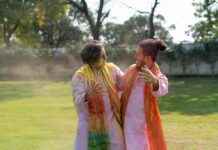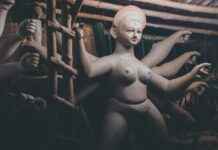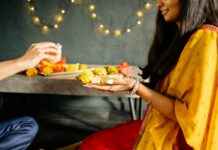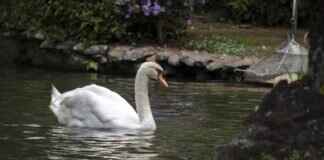This article explores the vibrant Diwali celebrations in New York, highlighting key events, parades, and parties that capture the festive spirit of this significant cultural festival. Diwali, also known as the Festival of Lights, is celebrated by millions around the world, and New York City is no exception. The city’s diverse population comes together to commemorate this joyous occasion, showcasing a rich tapestry of traditions, food, and cultural displays.
Understanding Diwali: The Festival of Lights
Diwali, celebrated primarily by Hindus, Sikhs, and Jains, symbolizes the triumph of light over darkness and good over evil. The festival has its roots in ancient Indian traditions, marking the return of Lord Rama to Ayodhya after defeating the demon king Ravana. The festival is typically celebrated over five days, with each day holding its significance, including Dhanteras, Naraka Chaturdashi, Lakshmi Puja, Govardhan Puja, and Bhai Dooj. During Diwali, homes are adorned with diyas (oil lamps), colorful rangoli designs, and vibrant decorations, creating a festive atmosphere.
Major Diwali Parades in New York City
Parades are a hallmark of Diwali celebrations in New York, offering a spectacular display of cultural heritage. Notable among them is the Queens Diwali Parade, which has grown significantly over the years, attracting thousands of participants and spectators. The parade features traditional music, dance performances, and floats that celebrate Indian culture. Another prominent event is the Manhattan Diwali Parade, which showcases the diversity of the city through various cultural performances, food stalls, and community engagement. These parades not only entertain but also educate attendees about the significance of Diwali, making them essential components of the celebrations.
Diwali Festivals at Local Temples
Temples across New York City play a crucial role in celebrating Diwali. The Hindu Temple Society of North America hosts elaborate celebrations, including traditional pujas, cultural performances, and community feasts. These events foster a sense of belonging among attendees, allowing them to connect with their roots. Similarly, the ISKCON Temple offers unique festivities, such as kirtans and prasadam (blessed food), drawing both devotees and visitors eager to experience the spiritual side of Diwali.
Community Events and Cultural Programs
Community organizations throughout New York City host a variety of Diwali events, ensuring that everyone can partake in the celebrations. The Diwali Mela is a cultural fair that features stalls selling traditional clothing, jewelry, and food. Attendees can enjoy live performances, dance workshops, and art exhibitions, showcasing the richness of Indian culture. Additionally, workshops focused on cooking and traditional crafts engage participants of all ages, promoting cultural education and interaction within the community.
Diwali Parties: Where to Celebrate
The nightlife in New York City comes alive during Diwali, with numerous themed parties taking place across various venues. Popular nightclubs host special events featuring Bollywood music, dance performances, and festive decorations, attracting party-goers eager to celebrate the festival in style. Community centers also organize family-friendly Diwali parties, providing activities, games, and entertainment options suitable for all ages. These gatherings create a festive atmosphere, allowing families to bond while celebrating the spirit of Diwali together.
Diwali Cuisine: Food Festivals and Special Menus
Food is an integral part of Diwali celebrations, with many Indian restaurants offering special menus featuring traditional dishes. From samosas and paneer to an array of sweets like gulab jamun and barfi, the culinary offerings during Diwali are a feast for the senses. Food festivals held during this time showcase a variety of cuisines, with cooking demonstrations and tastings that celebrate the rich culinary diversity of Indian culture. These events not only highlight traditional recipes but also bring communities together through the shared joy of food.

Understanding Diwali: The Festival of Lights
Diwali, often referred to as the Festival of Lights, is a significant cultural and religious celebration observed by millions across the globe. This vibrant festival, celebrated primarily by Hindus, Jains, Sikhs, and some Buddhists, marks the victory of light over darkness, knowledge over ignorance, and good over evil. The origins of Diwali can be traced back to ancient India, where it has evolved over centuries, intertwining with various cultural traditions and practices.
The festival typically spans five days, with each day holding its unique significance and rituals. The first day, known as Dhanteras, is dedicated to wealth and prosperity, where families clean and decorate their homes and purchase new items, especially gold or silver. The second day, Naraka Chaturdashi or Choti Diwali, commemorates the victory of Lord Krishna over the demon Narakasura, symbolizing the triumph of good over evil.
The third day is the main celebration of Diwali, where families perform Lakshmi Puja to invite the goddess of wealth and prosperity into their homes. This day is characterized by the lighting of oil lamps, bursting of fireworks, and sharing of sweets and gifts among family and friends. The fourth day, known as Bhai Dooj, celebrates the bond between brothers and sisters, where sisters pray for their brothers’ well-being and brothers give gifts in return.
Beyond its religious significance, Diwali serves as a time for community bonding and cultural exchange. In many cities, grand celebrations are organized, featuring parades, cultural performances, and fairs that bring together people from diverse backgrounds. This aspect of Diwali showcases its ability to transcend religious boundaries, inviting everyone to partake in the festivities.
Historically, Diwali has roots in various ancient texts and legends. In Hinduism, it is linked to the epic Ramayana, where Lord Rama returned to his kingdom of Ayodhya after defeating the demon king Ravana. The people of Ayodhya celebrated his return by lighting oil lamps, a tradition that continues to this day. Similarly, for Jains, Diwali marks the day Lord Mahavira attained Nirvana, while Sikhs celebrate the release of Guru Hargobind Ji from imprisonment.
In contemporary times, Diwali has gained international recognition, celebrated in countries like Nepal, Sri Lanka, Malaysia, and even by non-Indian communities worldwide. The festival’s themes of hope, renewal, and unity resonate universally, making it a cherished occasion for many.
In summary, Diwali is more than just a festival; it is a celebration of life, culture, and spirituality. It embodies the essence of togetherness and joy, urging individuals to reflect on their lives and spread positivity. As the lights illuminate the night sky, they serve as a reminder of the enduring power of hope and love in a world often shadowed by challenges.

Major Diwali Parades in New York City
Diwali, the Festival of Lights, is celebrated with immense zeal and enthusiasm in New York City, and one of the highlights of these celebrations is the vibrant parades that take place throughout the city. These parades not only showcase the rich cultural heritage of the Indian community but also bring together people from various backgrounds to partake in the festivities. In this section, we will delve into the most prominent Diwali parades in New York City, discussing their routes, entertainment offerings, and what attendees can expect.
The Queens Diwali Parade
The Queens Diwali Parade stands out as one of the largest and most celebrated events in the city. Traditionally held in Jackson Heights, this parade attracts thousands of attendees each year. The parade’s route is a vibrant tapestry of colors, featuring floats adorned with lights and decorations that reflect the spirit of Diwali. Local schools, cultural organizations, and community groups participate, showcasing traditional dances, music performances, and theatrical presentations that highlight the significance of the festival.
Attendees can expect to enjoy a variety of cultural displays, including classical Indian dance forms like Bharatanatyam and Kathak, as well as modern interpretations that resonate with younger generations. The community involvement in this parade is remarkable, with volunteers assisting in organizing and executing the event, making it a true celebration of unity and diversity.
The Manhattan Diwali Parade
Another major highlight is the Manhattan Diwali Parade, which takes place in the heart of the city. This parade draws a diverse crowd, including locals and tourists alike, creating a festive atmosphere that envelops the streets of Manhattan. The parade route often starts at a prominent landmark and winds through bustling neighborhoods, allowing participants to experience the city’s energy while celebrating Diwali.
Attendees can look forward to a rich array of entertainment, from live music to dance performances that celebrate Indian culture. The Manhattan Diwali Parade also emphasizes inclusivity, featuring participants from different cultural backgrounds, showcasing the universal appeal of Diwali. Food stalls offering traditional Indian snacks and sweets further enhance the experience, allowing attendees to indulge in the flavors of the festival.
What to Expect at the Parades
Both the Queens and Manhattan Diwali Parades offer attendees a unique experience filled with cultural enrichment and community spirit. From the dazzling floats to the lively performances, the parades serve as a platform for cultural expression and celebration. Visitors can engage with local artisans showcasing their crafts, enjoy delicious food options, and participate in interactive activities that educate them about Diwali’s significance.
Moreover, the parades often conclude with a communal gathering where attendees can share their experiences and connect with one another, reinforcing the sense of community that Diwali fosters. Whether you are a long-time resident of New York or a visitor, participating in these parades is a wonderful way to immerse yourself in the rich tapestry of Indian culture and the joyous spirit of Diwali.
The Queens Diwali Parade
is not just a celebration; it is a vibrant tapestry of culture, community, and festivity that draws thousands each year. As one of the largest Diwali parades in New York City, it showcases the rich heritage of the Indian community and serves as a beacon of unity and joy during the Festival of Lights.
This parade has a rich history, having started as a small gathering to celebrate Diwali and gradually evolving into a grand event that reflects the diversity of the borough of Queens. The first parade took place over a decade ago, initiated by community leaders who aimed to bring together people from various backgrounds to celebrate this significant cultural festival. Today, it features colorful floats, traditional music, and dance performances that captivate attendees of all ages.
Community Involvement is at the heart of the Queens Diwali Parade. Local organizations, schools, and businesses come together to participate, showcasing their talents and contributions. The involvement of community members is not limited to spectators; many volunteers dedicate their time to help organize the event, ensuring everything runs smoothly. This collaboration fosters a sense of belonging and pride among participants, making the parade a true community affair.
The parade is known for its diverse performances that highlight various aspects of Indian culture. Attendees can enjoy breathtaking classical dance forms such as Bharatanatyam and Kathak, as well as modern dance interpretations that resonate with younger generations. Additionally, local musicians perform traditional songs, creating an atmosphere filled with rhythm and joy. The parade also features vibrant costumes that reflect the festival’s spirit, with participants often donning colorful attire that adds to the visual spectacle.
| Event Highlights | Description |
|---|---|
| Parade Route | The parade typically winds through key streets in Queens, allowing for maximum visibility and participation. |
| Food Stalls | Delicious Indian cuisine is available, offering a taste of traditional Diwali sweets and snacks. |
| Family Activities | Various activities and workshops for children are organized, ensuring that families can enjoy the festivities together. |
One of the most anticipated aspects of the Queens Diwali Parade is the cultural exchange it promotes. People from all walks of life come together to appreciate the beauty of Indian traditions. This aspect of the parade is crucial, as it encourages understanding and respect among different cultures, fostering a sense of community that extends beyond the festivities.
In conclusion, the Queens Diwali Parade is a must-see event that embodies the spirit of Diwali through its rich history, community involvement, and spectacular performances. As the festival continues to grow in popularity, it remains a vital part of New York City’s cultural landscape, uniting diverse communities in celebration of light, love, and togetherness.
The Manhattan Diwali Parade
The **Manhattan Diwali Parade** is a dazzling celebration that draws thousands of participants and spectators alike, marking one of the most significant cultural events in New York City. This annual parade, which takes place in the heart of Manhattan, is a vibrant showcase of **Indian culture**, traditions, and the spirit of community. It symbolizes the triumph of light over darkness, echoing the core theme of Diwali, the Festival of Lights.
- Significance of the Parade: The Manhattan Diwali Parade serves as a reminder of the rich cultural heritage of the Indian community in New York. It is a platform for expressing the importance of unity, diversity, and the celebration of life.
- Diversity of Participants: The parade features a wide array of participants, including local community groups, cultural organizations, and schools. This diversity reflects the melting pot that is New York City, where individuals from various backgrounds come together to celebrate.
- Festive Atmosphere: The atmosphere during the parade is nothing short of electric. Streets are filled with colorful floats, traditional music, and dance performances that captivate audiences. Participants often dress in traditional Indian attire, adding to the vibrant visual spectacle.
The parade kicks off with a lively procession that includes floats adorned with lights and decorations that echo the essence of Diwali. Many attendees engage in traditional dances, such as **Bhangra** and **Garba**, showcasing the rich cultural tapestry of India. The sounds of **dhol** drums and festive music fill the air, creating an immersive experience for everyone involved.
Moreover, the Manhattan Diwali Parade is not just about entertainment; it also serves an educational purpose. Various booths and stalls are set up along the parade route, offering information about Diwali’s significance, cultural practices, and the history behind the festival. This aspect of the parade encourages cultural exchange and understanding among the diverse New York population, fostering a sense of community and belonging.
As night falls, the parade takes on a magical quality. The streets are illuminated with **lights and diyas**, symbolizing the victory of light over darkness. Fireworks often light up the sky, adding to the celebratory mood and marking the end of the parade with a spectacular display.
In summary, the Manhattan Diwali Parade is a significant event that not only celebrates the Festival of Lights but also promotes cultural awareness and unity among diverse communities. It encapsulates the essence of Diwali, making it a must-see event for both locals and visitors. As the city comes alive with color, music, and joy, the parade stands as a testament to the vibrant spirit of New York City and the rich traditions of its Indian community.

Diwali Festivals at Local Temples
Diwali, the Festival of Lights, is a time for celebration, reflection, and community bonding. In New York, local temples play a pivotal role in the festivities, offering a spiritual haven for devotees and visitors alike. This section delves into the various , showcasing the rich traditions, rituals, and community activities that characterize this joyous occasion.
Temples serve as the heart of Diwali celebrations, where individuals come together to honor deities, engage in prayers, and participate in communal rituals. The essence of Diwali lies in its ability to foster a sense of community and belonging. At these spiritual centers, the festival is marked by a series of events that not only highlight religious practices but also promote cultural heritage.
One of the highlights of Diwali at local temples is the array of rituals and prayers conducted throughout the festival. Temples often begin their celebrations with a special puja (worship ceremony) dedicated to Goddess Lakshmi, the deity of wealth and prosperity. Devotees gather to offer prayers, light lamps, and decorate the temple with vibrant flowers and colorful rangoli designs. These rituals are steeped in tradition and are essential for invoking blessings for the coming year.
Local temples frequently organize community gatherings that bring together people of all ages. These events often include cultural performances, such as traditional dance and music, which showcase the rich tapestry of Indian culture. For instance, at the Hindu Temple Society of North America, visitors can enjoy performances that reflect various regional traditions, enhancing the festive atmosphere. Additionally, community members often come together to share delicious festive foods, fostering a spirit of togetherness and celebration.
Many temples in New York host unique events tailored to celebrate Diwali. For example, the ISKCON Temple is renowned for its vibrant celebrations, which include kirtans (devotional singing) and elaborate feasts. These gatherings attract not only devotees but also individuals from diverse backgrounds, promoting intercultural dialogue and understanding. The temple’s festivities often culminate in a grand firework display, illuminating the night sky and symbolizing the triumph of light over darkness.
The success of Diwali celebrations at local temples heavily relies on community involvement. Volunteers play a crucial role in organizing events, decorating the temple, and preparing meals for the attendees. This collaborative effort not only strengthens community bonds but also allows individuals to take part in meaningful traditions. Many temples offer workshops leading up to Diwali, where community members can learn about the significance of the festival and how to participate actively in the celebrations.
Diwali festivals at local temples in New York exemplify the spirit of unity and tradition, making them an integral part of the city’s cultural landscape. Through rituals, prayers, and community gatherings, these spiritual centers create a welcoming environment for all, ensuring that the essence of Diwali is celebrated with joy and reverence.
Festivities at the Hindu Temple Society of North America
The Hindu Temple Society of North America (HTSNA) is a cornerstone of the Indian community in New York, particularly during the vibrant festival of Diwali. Known for its elaborate celebrations, the temple becomes a hub of activity, drawing devotees and visitors alike to partake in a variety of events that honor this significant occasion. This article delves into the various festivities organized at the HTSNA during Diwali, exploring the traditional rituals, cultural performances, and their profound importance to the community.
At the heart of Diwali celebrations at HTSNA are the traditional pujas that take place over several days. These rituals are steeped in cultural significance, symbolizing the victory of light over darkness and good over evil. The temple hosts daily prayers, where devotees gather to offer their respects to deities such as Goddess Lakshmi, the goddess of wealth and prosperity, and Lord Ganesha, the remover of obstacles. Each puja is accompanied by chanting of mantras, lighting of diyas (oil lamps), and the sharing of prasad (blessed food). This collective worship not only strengthens individual faith but also fosters a sense of community among participants.
In addition to the spiritual aspect, the HTSNA showcases a variety of cultural performances that highlight the richness of Indian traditions. These events often include classical dance performances, music recitals, and theatrical presentations that narrate stories from Hindu mythology. Local artists and community members are encouraged to participate, allowing for a diverse range of talent to shine. The performances are designed to engage audiences of all ages, making the temple a lively place of celebration during Diwali. The joyous atmosphere is further enhanced by vibrant decorations, including colorful rangoli art and elaborate floral arrangements, creating a visual feast that complements the festivities.
The HTSNA plays a pivotal role in community outreach during Diwali, inviting families from all backgrounds to join in the celebrations. This inclusivity is reflected in the various programs organized for children and adults alike, including workshops on traditional crafts, cooking classes for festive sweets, and educational sessions about the significance of Diwali. Such initiatives not only promote cultural awareness but also strengthen community bonds. Volunteers from the temple often collaborate with local organizations to distribute food and clothing to those in need, embodying the spirit of generosity that is central to the festival.
The Diwali festivities at the Hindu Temple Society of North America hold immense significance for the community. They serve as a reminder of the values of hope, renewal, and togetherness. For many, participating in these celebrations is a way to reconnect with their cultural roots and pass on traditions to the next generation. The temple acts as a sanctuary where individuals can find solace and joy during this auspicious time. As the community gathers to celebrate, the sense of unity and shared purpose becomes palpable, making the HTSNA a beacon of light during the Diwali season.
Diwali Celebrations at the ISKCON Temple
The ISKCON Temple in New York is renowned for its vibrant and spiritually enriching Diwali celebrations. Each year, this sacred space transforms into a hub of joy and devotion, attracting both local devotees and visitors from afar. The festivities at ISKCON are not just about rituals; they embody a rich tapestry of cultural expressions that resonate deeply with the essence of Diwali.
During Diwali, the ISKCON Temple organizes a variety of special programs that highlight the festival’s significance. One of the most beloved activities is the kirtan, a form of congregational singing that involves chanting the names of the divine. These kirtans are not only spiritually uplifting but also create an atmosphere of community and togetherness. Participants, regardless of their backgrounds, are welcome to join in the singing, often accompanied by traditional instruments such as harmoniums and mrdangas.
The temple also hosts special pujas (prayers) during Diwali, which include rituals dedicated to Lord Krishna and other deities. These ceremonies are performed with great devotion and involve offerings of flowers, fruits, and sweets, symbolizing the abundance of blessings in life. The vibrant decorations and the aroma of incense fill the air, enhancing the spiritual ambiance.
Food plays a central role in the Diwali celebrations at ISKCON. The temple organizes elaborate feasts featuring a wide array of vegetarian dishes that reflect the diversity of Indian cuisine. Attendees can enjoy traditional sweets like gulab jamun and barfi, along with savory dishes such as paneer tikka and chole bhature. These meals are prepared with love and devotion, making them a highlight of the festivities.
The communal meals foster a sense of unity and sharing among participants. Families and friends gather to break bread together, reinforcing the spirit of Diwali as a time for togetherness and gratitude. This aspect of the celebration not only nourishes the body but also strengthens community bonds.
In addition to kirtans and feasts, the ISKCON Temple offers a variety of cultural activities that engage attendees of all ages. Workshops on traditional Indian arts, crafts, and dance are organized, allowing participants to immerse themselves in the rich cultural heritage associated with Diwali. These activities are designed to educate and inspire, making the festival a learning experience as well as a celebration.
For children, the temple arranges fun and educational programs that teach them about the significance of Diwali and the values it embodies. These activities often include storytelling sessions, where tales of Lord Rama and his victory over evil are shared, instilling a sense of moral values and cultural pride in young hearts.
The Diwali celebrations at the ISKCON Temple are a beautiful blend of spirituality, community, and culture. From the vibrant kirtans and elaborate feasts to the engaging workshops, every aspect of the festivities is designed to honor the essence of Diwali. This unique celebration not only attracts devotees but also serves as a welcoming space for visitors to experience the joy and significance of this festival, making it a cherished part of New York’s cultural landscape.

Community Events and Cultural Programs
Across New York City, the vibrant celebration of Diwali extends beyond parades and temple festivities to encompass a wide array of community events and cultural programs. These gatherings not only highlight the rich heritage of the Indian community but also invite individuals from all backgrounds to participate, learn, and enjoy. This section provides an overview of the various cultural programs, workshops, and activities that engage participants of all ages during the Diwali season.
One of the most significant aspects of Diwali celebrations in the city is the Diwali Mela, a cultural fair that attracts thousands of visitors each year. This festival typically features a multitude of stalls showcasing traditional crafts, clothing, and jewelry, allowing attendees to immerse themselves in the essence of Indian culture. Food vendors serve a variety of delicious Indian delicacies, from samosas to gulab jamun, creating a feast for the senses. Live performances, including traditional dance and music, are also a staple of the Mela, providing entertainment and fostering a sense of community among attendees.
In addition to the Mela, numerous workshops are organized throughout the city, offering opportunities for hands-on learning and cultural exchange. These workshops cover a range of topics, including Indian cooking, traditional dance forms like Bharatanatyam and Kathak, as well as art forms such as Rangoli making and Diwali lantern crafting. Such activities not only educate participants about the cultural significance of these traditions but also allow for personal expression and creativity.
Another notable initiative is the series of art exhibitions held in various community centers and galleries, showcasing the work of local artists who draw inspiration from the themes of Diwali. These exhibitions provide a platform for artists to share their interpretations of light, hope, and renewal, which are central to the festival. Visitors can engage with the artists, participate in discussions, and even purchase pieces that resonate with them, further supporting the local art community.
The involvement of schools and educational institutions also plays a crucial role in promoting cultural awareness during Diwali. Many schools organize special assemblies and programs where students can perform skits, dances, and songs that celebrate the festival. Such initiatives not only foster a sense of pride among students of Indian descent but also educate their peers about the significance of Diwali, promoting inclusivity and understanding.
Additionally, community organizations often collaborate with local businesses to host family-friendly events that cater to all ages. These events might include cooking competitions, where families can showcase their culinary skills, or talent shows that highlight the diverse talents within the community. Such gatherings create a festive atmosphere, encouraging families to bond over shared experiences while celebrating their cultural heritage.
Overall, the community events and cultural programs during Diwali in New York City serve as a vital link between tradition and modernity. They provide a platform for cultural expression, foster community engagement, and invite individuals from various backgrounds to partake in the joyous celebration of the Festival of Lights. Through these initiatives, Diwali becomes not just a celebration of a religious festival but a vibrant showcase of the rich tapestry of cultures that make up the city.
Diwali Mela: A Cultural Extravaganza
The Diwali Mela is a vibrant and colorful cultural fair that brings together people from various backgrounds to celebrate the rich heritage of Indian culture during the Festival of Lights. This event is not just about festivities; it is a unique opportunity to experience the diverse traditions, art forms, and culinary delights that characterize this auspicious occasion.
Visitors to the Diwali Mela can expect a plethora of activities and attractions. The fair typically features a variety of stalls showcasing traditional crafts, clothing, and jewelry. Artisans from different regions of India display their handmade products, allowing attendees to appreciate the skill and creativity involved in each piece. The vibrant colors and intricate designs serve as a testament to India’s rich artistic heritage.
One of the highlights of the Diwali Mela is undoubtedly the food. A wide array of food vendors offers an assortment of traditional Indian dishes, ranging from savory snacks to mouth-watering sweets. Popular items include:
- Samosas – Crispy pastry filled with spiced potatoes and peas.
- Chaat – A flavorful mix of potatoes, chickpeas, and tangy chutneys.
- Jalebi – A sweet, spiral-shaped dessert soaked in syrup.
- Paneer Tikka – Grilled cheese cubes marinated in spices.
These delicious offerings not only satiate hunger but also provide a taste of the diverse culinary landscape of India. Visitors often find themselves exploring various stalls, sampling different dishes, and sharing their experiences with friends and family.
The Diwali Mela is also known for its performances that highlight Indian music and dance. Various cultural groups come together to present traditional dances such as Bharatanatyam, Kathak, and Bollywood dance. These performances are a feast for the eyes, filled with vibrant costumes and energetic rhythms that captivate audiences of all ages.
In addition to dance, the fair often features live music performances, including classical music and contemporary fusion bands. These acts not only entertain but also educate attendees about the significance of various art forms within Indian culture.
Another essential aspect of the Diwali Mela is community engagement. Many fairs organize workshops where attendees can participate in activities like henna painting, traditional cooking classes, and craft-making sessions. These interactive experiences allow visitors to immerse themselves in Indian culture and learn new skills.
Families often find the Mela to be a perfect outing, as there are activities tailored for children, including storytelling sessions and puppet shows that convey moral lessons and cultural values.
The Diwali Mela is more than just a fair; it is a celebration of community, culture, and togetherness. By bringing together diverse elements of Indian heritage, it educates and entertains, creating lasting memories for all who attend. Whether you are there for the food, the performances, or the vibrant atmosphere, the Diwali Mela is an event that truly embodies the spirit of Diwali.
Workshops and Art Exhibitions
During the vibrant celebrations of Diwali, workshops and art exhibitions serve as essential platforms for cultural exchange and education. These events not only promote the rich heritage of Indian traditions but also create an interactive environment for participants of all ages. In this section, we will explore the various workshops and exhibitions that take place during Diwali, emphasizing their significance in fostering community engagement and cultural appreciation.
Art workshops are a cornerstone of Diwali celebrations, offering attendees the opportunity to explore their creativity while learning about traditional art forms. From Rangoli making to Mandala art, these workshops allow participants to engage with the cultural aspects of Diwali. The intricate designs of Rangoli, often made with colored powders, rice, or flower petals, symbolize welcoming guests and good fortune.
- Rangoli Workshops: These workshops guide participants through the process of creating beautiful Rangoli designs, often incorporating themes related to Diwali.
- Painting Workshops: Participants can learn traditional Indian painting techniques, such as Madhubani or Pattachitra, which tell stories and celebrate the festival’s themes.
Such workshops not only enhance artistic skills but also foster a deeper understanding of the cultural narratives that these art forms represent. They often culminate in an exhibition where participants can showcase their creations, promoting a sense of accomplishment and community spirit.
Dance is another vital aspect of Diwali celebrations, and workshops dedicated to traditional dance forms provide an engaging way to connect with the festival’s spirit. Workshops often focus on styles like Bharatanatyam, Kathak, and Bollywood dance, catering to various age groups and skill levels.
- Bharatanatyam Workshops: Participants learn the classical dance form’s intricate footwork and expressive hand gestures, embodying the stories of Hindu mythology.
- Bollywood Dance Workshops: These fun and energetic sessions allow participants to learn popular dance routines from Bollywood films, making it accessible and enjoyable.
By participating in these dance workshops, individuals not only gain physical skills but also develop a sense of rhythm and appreciation for the cultural significance behind each movement. The workshops often conclude with a group performance, bringing together the community in a celebration of unity and joy.
Food is at the heart of Diwali celebrations, and cooking workshops offer a delicious way to engage with the festival. These workshops typically focus on traditional Indian recipes that are commonly prepared during Diwali, such as sweet treats and savoury snacks.
- Sweet Making Workshops: Participants learn to prepare popular Diwali sweets like Ladoo, Barfi, and Gulab Jamun, which are integral to the festivities.
- Savoury Snack Workshops: These sessions focus on creating traditional snacks like Samosas and Kachoris, which are enjoyed during Diwali gatherings.
These cooking workshops not only provide participants with culinary skills but also share the stories and significance behind each dish, enhancing the cultural experience. Participants often leave with recipes and new friendships, making the workshops a memorable part of the Diwali celebrations.
In addition to workshops, cultural exhibitions play a significant role in showcasing the richness of Indian heritage during Diwali. These exhibitions often feature a variety of art forms, including paintings, sculptures, textiles, and crafts that reflect the diversity of Indian culture.
- Art Exhibitions: Local artists display their works, often inspired by themes of light, hope, and renewal, which resonate with the essence of Diwali.
- Cultural Displays: These exhibitions may include traditional attire, handicrafts, and interactive displays that educate attendees about the significance of various customs and practices.
Cultural exhibitions provide a platform for local artists and artisans to share their work, fostering appreciation for traditional crafts and encouraging community support. Visitors often leave with a deeper understanding of the cultural narratives that shape Diwali celebrations.
In conclusion, workshops and art exhibitions during Diwali not only enrich the festive experience but also serve as vital tools for cultural education and community engagement. By participating in these events, individuals can celebrate the festival’s spirit while gaining valuable skills and knowledge about the traditions that make Diwali a truly special occasion.

Diwali Parties: Where to Celebrate
New York City transforms into a vibrant celebration of culture and joy during Diwali, with a plethora of themed parties that invite revelers to partake in the festivities. From upscale nightclubs to community centers, the city offers a diverse range of venues that cater to every taste and preference. This section will explore some of the most popular locations hosting Diwali parties, their unique themes, and the entertainment options that make each event special.
Top Nightclubs Celebrating Diwali
New York’s nightlife is renowned for its energy, and during Diwali, several nightclubs elevate the experience with themed parties that celebrate the Festival of Lights. One of the top venues is Aura Nightclub, known for its extravagant decor and stunning light displays that embody the spirit of Diwali. The club features renowned DJs spinning a mix of Bollywood hits and popular dance tracks, ensuring that the dance floor remains packed throughout the night. Special drink promotions, such as festive cocktails infused with Indian spices, add to the celebratory atmosphere.
Another popular spot is Le Souk, which embraces the festival with a Middle Eastern twist. Themed nights include traditional Indian dances and performances, creating a fusion of cultures that captivates attendees. Guests can enjoy a lavish buffet featuring a blend of Indian and Middle Eastern cuisines, making it a culinary delight.
For those seeking a more upscale experience, 1 OAK offers an exclusive Diwali celebration that includes VIP tables and bottle service. The venue’s elegant ambiance is complemented by live performances from popular artists, making it a sought-after destination for party-goers looking to celebrate in style.
Community Center Celebrations
In addition to nightclubs, community centers across New York City host family-friendly Diwali parties that foster a sense of togetherness and cultural appreciation. One notable venue is the South Asian Community Center, which organizes an annual Diwali bash that attracts families from all over the city. The event features a variety of activities, including traditional dance performances, craft stations for children, and delicious food stalls offering authentic Indian snacks and sweets.
Another community favorite is the Indian Cultural Center, which hosts a Diwali celebration that emphasizes cultural education and community bonding. The event includes workshops where attendees can learn about the significance of Diwali through interactive storytelling and art. The highlight of the evening is the communal dinner, where families come together to share a meal, fostering connections and friendships.
Local temples also play a vital role in Diwali celebrations, with many organizing festive events that are open to the community. The Hindu Temple Society of North America hosts a Diwali party that includes cultural performances, traditional prayers, and a communal feast that brings together devotees and visitors alike.
Unique Themes and Entertainment Offerings
What sets these Diwali parties apart are their unique themes and entertainment offerings. Many venues incorporate traditional elements into their celebrations, such as Rangoli art displays and Diya lighting ceremonies, allowing guests to immerse themselves in the cultural significance of the festival.
Live music and dance performances are common highlights at these events, with many featuring talented artists showcasing classical Indian dance forms like Bharatanatyam and Kathak. Additionally, DJs often mix traditional Indian music with contemporary beats, creating an electrifying atmosphere that encourages everyone to dance.
In conclusion, New York City’s Diwali parties offer a rich tapestry of experiences that cater to diverse audiences. Whether you choose to celebrate at a bustling nightclub or a warm community gathering, the essence of Diwali—joy, unity, and the triumph of light—shines brightly throughout the city.
Top Nightclubs Celebrating Diwali
New York City, known for its vibrant nightlife, transforms into a hub of celebration during the Diwali festival. Several nightclubs across the city host special events, bringing together revelers to enjoy the festivities in a lively atmosphere. These parties are not just about dancing; they are a cultural experience that showcases the essence of Diwali through music, decorations, and culinary delights.
As the sun sets, the city lights up with the glow of colorful decorations and the sound of Bollywood hits reverberates through the streets. Nightclubs such as SL Lounge, The Gold Room, and Cielo are among the popular venues that host themed Diwali parties, attracting a diverse crowd eager to celebrate.
Atmosphere and Decorations
The atmosphere at these nightclubs is electric, with elaborate decorations that reflect the spirit of Diwali. Expect to see rangoli designs, fairy lights, and traditional lanterns adorning the venues. Many clubs also incorporate elements of Indian culture into their decor, creating an immersive experience for attendees. The fusion of modern nightlife and traditional celebration sets the perfect backdrop for a memorable night.
Music and Entertainment
Music is a vital component of Diwali celebrations, and nightclubs in New York do not disappoint. DJs spin a mix of Bollywood hits, Bhangra beats, and contemporary tracks, ensuring that the dance floor is always packed. Live performances, including traditional dance troupes, add an extra layer of entertainment, captivating the audience with their vibrant displays. This combination of music and dance creates an atmosphere of joy and celebration, making it impossible for guests to resist joining in the fun.
Special Promotions and Culinary Delights
Many nightclubs offer special promotions during Diwali, such as discounted entry fees or complimentary drinks for those who arrive in traditional attire. These promotions encourage attendees to embrace the festive spirit while enjoying a night out. Additionally, food plays a crucial role in these celebrations. Some venues collaborate with local Indian restaurants to provide guests with a taste of traditional Diwali cuisine, featuring dishes like samosas, paneer tikka, and an array of sweets such as gulab jamun and jalebi. This culinary experience enhances the overall celebration, allowing guests to indulge in the flavors of India.
Community and Inclusivity
One of the most remarkable aspects of Diwali celebrations in New York’s nightclubs is the sense of community and inclusivity. People from various backgrounds come together to celebrate this festival of lights, fostering a sense of unity and cultural exchange. The welcoming atmosphere encourages everyone to participate, whether they are familiar with the traditions of Diwali or experiencing them for the first time.
In conclusion, the nightclubs celebrating Diwali in New York City offer an unforgettable experience filled with vibrant music, exquisite food, and a festive atmosphere. These events not only highlight the cultural significance of Diwali but also create a space for people to come together in celebration. As the city lights up with joy and laughter, revelers can enjoy the rich tapestry of traditions that make Diwali a truly special occasion.
Community Center Celebrations
Community centers across New York play a pivotal role in bringing families together during the festive season of Diwali. These centers organize a myriad of activities that cater specifically to families, ensuring that everyone, from children to grandparents, can partake in the joyous celebrations.
- Family-Friendly Activities
One of the main attractions of community center celebrations is the array of family-friendly activities available. These activities often include traditional games, craft stations, and storytelling sessions that highlight the significance of Diwali. Children can engage in making colorful rangoli designs or crafting diyas, which are small oil lamps that symbolize the victory of light over darkness. These hands-on experiences not only entertain but also educate the younger generation about their cultural heritage.
- Delicious Food Offerings
Food is an integral part of any celebration, and Diwali is no exception. Community centers usually host potluck-style gatherings where families are encouraged to bring traditional dishes to share. This creates a vibrant atmosphere filled with the aromas of authentic Indian cuisine. Popular dishes often served include biryani, samosas, and various sweets like gulab jamun and jalebi. Additionally, many community centers partner with local Indian restaurants to provide catering, ensuring that attendees can enjoy a diverse range of culinary delights.
- Entertainment Options
Entertainment is another key component of community center Diwali celebrations. These events often feature live performances, such as traditional dance and music, which showcase the rich cultural tapestry of India. Local artists and community members come together to present captivating shows that include classical dances like Bharatanatyam and Kathak, as well as modern interpretations that appeal to younger audiences. Furthermore, some centers may organize talent shows where families can showcase their skills, fostering a sense of community and involvement.
- Workshops and Learning Opportunities
In addition to entertainment and food, community centers often host workshops that allow families to learn more about the traditions and customs of Diwali. These workshops can cover a variety of topics, from cooking classes that teach participants how to prepare traditional sweets to sessions on the significance of the rituals performed during the festival. Such educational opportunities not only enhance understanding but also encourage families to carry these traditions forward.
- Creating a Sense of Community
Perhaps the most significant aspect of community center celebrations is the sense of belonging they foster. These events provide a platform for families to connect with one another, share experiences, and build lasting friendships. The communal spirit of Diwali is palpable in these gatherings, as people from diverse backgrounds come together to celebrate a festival that transcends individual differences.
In summary, community center celebrations during Diwali offer a rich tapestry of activities, food, and entertainment that cater to families. Through engaging activities, delicious food, and vibrant performances, these celebrations not only honor the cultural significance of Diwali but also strengthen community bonds, making the festival a truly inclusive and joyous occasion for all.

Diwali Cuisine: Food Festivals and Special Menus
Food plays a vital role in the celebrations of Diwali, often referred to as the Festival of Lights. This festive occasion is not only about lighting lamps and bursting firecrackers but also about enjoying a plethora of delicious dishes that are deeply rooted in Indian culture. Each region of India has its own unique culinary traditions, and during Diwali, these flavors come together to create a vibrant tapestry of tastes that reflects the diversity of Indian cuisine.
During this festive time, families prepare an array of sweets and savory dishes, which are often shared with friends and neighbors. The preparation of food is seen as a way to invite prosperity and happiness into one’s home. Traditional dishes like ladoo, barfi, and samosas are staples during Diwali, showcasing the rich culinary heritage of India. Many families also take this opportunity to pass down recipes through generations, ensuring that the spirit of Diwali is preserved through food.
Many Indian restaurants in New York take the opportunity to create special Diwali menus that highlight traditional dishes. These menus often feature a mix of vegetarian and non-vegetarian options, catering to the diverse palate of the city’s residents. Some restaurants may include dishes such as paneer tikka, dal makhani, and biryani, all of which are prepared with authentic spices and ingredients to ensure an unforgettable dining experience.
Moreover, desserts play a significant role in Diwali celebrations. Restaurants often showcase sweets like gulab jamun, jalebi, and rasgulla, which are not only delicious but also symbolize the sweetness of life and the joy of the festival. Many establishments also offer takeout options for families who wish to celebrate at home, allowing them to enjoy a festive meal without the hassle of cooking.
In addition to restaurant offerings, various food festivals take place during Diwali, celebrating the culinary diversity of Indian culture. These festivals are typically organized in community centers or public spaces, featuring numerous food stalls, cooking demonstrations, and tasting sessions. Attendees can explore a variety of dishes from different regions of India, each showcasing its unique flavors and cooking techniques.
One popular event is the Diwali Mela, which not only highlights food but also includes cultural performances, arts and crafts, and activities for children. Food stalls at these festivals often serve traditional snacks like pakoras and chole bhature, alongside sweets and desserts that are synonymous with the festival. Cooking demonstrations by renowned chefs provide attendees with insights into how to prepare these dishes at home, making the experience both educational and enjoyable.
These food festivals not only promote the rich culinary traditions of India but also foster a sense of community among attendees. They provide an opportunity for people from different backgrounds to come together, share their love for food, and celebrate the spirit of Diwali in a joyous and inclusive environment.
In conclusion, the culinary aspect of Diwali is as significant as the cultural and spiritual elements of the festival. From special menus at local restaurants to vibrant food festivals, the flavors of Diwali bring people together, creating lasting memories and fostering a sense of unity and joy. Embracing these culinary traditions is vital for keeping the spirit of Diwali alive, ensuring that future generations continue to celebrate this beautiful festival with the same passion and enthusiasm.
Popular Indian Restaurants’ Diwali Specials
As Diwali approaches, the air fills with excitement and anticipation, especially when it comes to food. Many Indian restaurants across New York City prepare special Diwali menus that not only celebrate the festival but also showcase the rich culinary heritage of India. This article will delve into some of the most popular dining options, highlighting their unique dishes and festive offerings that make them stand out during this joyous occasion.
Diwali menus are often characterized by a blend of traditional and contemporary dishes. Restaurants take this opportunity to introduce seasonal specials that may not be available throughout the year. Common elements in these menus include:
- Sweets and Desserts: Diwali is synonymous with sweets. Restaurants often feature traditional Indian desserts such as gulab jamun, barfi, and jalebi, made with high-quality ingredients to ensure authenticity.
- Festive Thalis: Many establishments offer special thali options that include a variety of dishes served on a single platter. This allows diners to sample multiple flavors and textures, from rich curries to crispy papadums.
- Signature Dishes: Restaurants often create unique dishes that reflect their culinary style. For instance, some might offer spiced pumpkin curry or paneer tikka infused with festive flavors.
Here are some of the top Indian restaurants in New York City that are known for their exceptional Diwali offerings:
Tamarind Tribeca is renowned for its upscale dining experience. During Diwali, they present a special menu featuring tandoori lamb chops and butter chicken served with saffron-infused rice. Their desserts, especially the rasmalai, are a must-try.
This Michelin-starred restaurant offers a luxurious take on Indian cuisine. For Diwali, Junoon features a special tasting menu that includes lobster masala and a variety of vegetarian options. Their mango mousse for dessert is a delightful end to any meal.
Bukhara Grill takes pride in its traditional North Indian dishes. Their Diwali menu often includes dal makhani and naan baked in a clay oven. The festive atmosphere is enhanced by live music and cultural performances.
In addition to special menus, many Indian restaurants host events to celebrate Diwali. These can include:
- Live Cooking Demonstrations: Some restaurants invite chefs to demonstrate how to prepare traditional dishes, providing guests with a hands-on experience.
- Festive Decor: Many establishments go all out with decorations, using colorful lights and rangoli designs to create a festive ambiance.
- Special Discounts: During Diwali, restaurants often offer discounts or special deals to attract families and large groups celebrating together.
Dining out during Diwali is not just about food; it’s an experience that brings people together to celebrate. With so many Indian restaurants in New York offering unique specials, there’s no shortage of options to indulge in the flavors of this beautiful festival. Whether you are looking for a casual meal or an extravagant dining experience, the city has something to offer for everyone, making it a perfect destination to enjoy the spirit of Diwali.
Food Festivals Celebrating Diwali
Food festivals during Diwali are a vibrant and essential part of the celebrations, showcasing the rich culinary heritage of India. These festivals not only highlight traditional dishes but also introduce attendees to a variety of regional cuisines, reflecting the diversity of Indian culture. From spicy street foods to rich desserts, the offerings at these festivals are sure to tantalize the taste buds of all who attend.
Visitors to Diwali food festivals can look forward to an array of experiences. Typically, these events feature numerous food stalls operated by local restaurants, catering companies, and home chefs, each presenting their unique flavors and specialties. Attendees can sample everything from chole bhature and pani puri to gulab jamun and barfi. The atmosphere is often lively, with music, dance performances, and cooking demonstrations adding to the festive spirit.
Many Diwali food festivals include cooking demonstrations led by renowned chefs or local culinary experts. These sessions provide a unique opportunity for attendees to learn about traditional cooking techniques and the significance of various dishes in Diwali celebrations. Participants can engage directly with chefs, asking questions and gaining insights into the ingredients and preparation methods used in authentic Indian cuisine.
Tastings are a highlight of any food festival, and Diwali celebrations are no exception. Attendees can sample small portions of various dishes, allowing them to experience a wide range of flavors without committing to a full meal. This format encourages exploration and discovery, making it a fun and engaging way to enjoy the culinary offerings. Many festivals also feature dessert tastings, showcasing the sweet treats that are integral to Diwali celebrations.
One of the most exciting aspects of Diwali food festivals is the opportunity to explore regional cuisines from across India. Each region boasts its own unique dishes and cooking styles, and festivals often highlight this diversity. For example, attendees might find Rajasthani dal baati churma, Punjabi butter chicken, or South Indian dosa. This not only enriches the culinary experience but also fosters a greater appreciation for the cultural differences within India.
Diwali food festivals serve as a platform for community engagement and cultural exchange. They bring together people from various backgrounds to celebrate the festival of lights through food. This communal aspect is vital, as it promotes understanding and appreciation of different cultures. Many festivals also incorporate cultural performances, art displays, and workshops, creating a holistic experience that goes beyond just food.
Food festivals during Diwali are not merely about indulging in delicious dishes; they serve as a celebration of culture, community, and tradition. By showcasing the culinary diversity of India, these festivals allow people to connect with their heritage and with one another. Whether you are a food enthusiast or someone looking to experience the rich tapestry of Indian culture, attending a Diwali food festival is an enriching experience that should not be missed.














